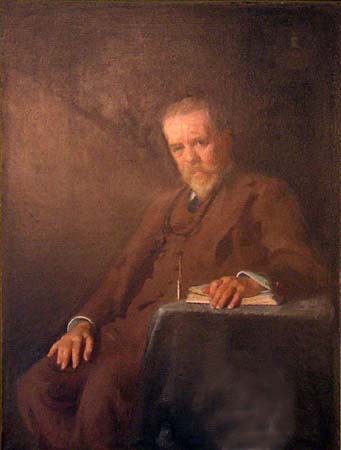 Barrett Wendell & His Letters
Barrett Wendell & His LettersBy: M. A. Dewolfe Howe
Atlantic Monthly Press, 1924
Barrett Wendell is probably not someone that most have heard of. He was an author and Harvard professor. He travelled the world lecturing on the writings of Shakespeare and other important literary figures. He was well known in his time, especially in the New England area.
The importance of Barrett Wendell & His Letters, to me, is not necessarily the record of Wendell's life revealed through his vast amounts of written correspondence. More importantly we see the development of intellectualism in the years prior to and even during World War I. We also see the political struggles of the time - especially the great debate over neutrality in the years prior to World War I.
This book became a bit tedious towards the end, especially because the most personal of his letters were omitted. I was thrilled, though, in the last chapter to find references to two different Pulitzer prize winning authors who were writing their prize-winning books at the time - including Albert J. Beveridge (The Life of John Marshall) and Booth Tarkington (The Magnificent Ambersons). I am noticing that the books written at least in the first half of the twentieth century quite often make reference to prominent people and events of the time - assuming that the reader knows what they are talking about. More often than not I do not know what they are referring to - I might recognize a name but not know it's significance. It feels good every once in a while to know exactly what they are talking about!


